Colonel Bagshot | Interview | Brian Farrell | NO WAR – Exclusive Unheard Version of the Legendary ‘Six Day War’ featuring Ollie Halsall
Colonel Bagshot were an English rock band formed in the late 1960s in Liverpool, England. Originally called “Colonel Bagshot’s Incredible Bucket Band”, they began as a six-piece, eventually becoming a four-piece.
Their most well known track is the lead single off their 1971 debut album, ‘Oh! What A Lovely War’, titled ‘Six Day War’. The track has been remixed in 2002 by DJ Shadow and also by Mahmut Orhan in 2018.
Seelie Court will issue ‘Oh! What A Lovely War’ by Colonel Bagehot on vinyl and also ‘Six Days War’ by Brian Farrell & Colonel Bagehot on vinyl and cd. The latter will consist of unissued songs and different versions, with legendary guitar here Ollie Halsall and others). Today we are premiering the unheard version of ‘Six Day War’ on which Ollie Halsall himself is playing guitar.
[Copyright: Seelie Court]
In 1972 you recorded a song that is sadly still relevant today. What’s the story behind writing ‘Six Day War’?
Brian Farrell: It seems looking back, that in the 60s we were much more conscious of the futility of war, although you only have to look at the current situation, to realise that we have learnt nothing from history, but that song was just the way I envisaged things could unfold, and when you push the TV on today, it puts me back in the song.
Kenny Parry: ‘Six Day War’ was written by Brian Farrell and sung by me in 1971 because it was more suited to my voice. We recorded it as Colonel Bagshot. Not much happened after that until DJ Shadow found it in a record shop on vinyl in the USA. Then it went viral with my voice still, but sampled and slightly speeded up. According to Brian, it “wrote itself quite quickly” and there are literally hundreds of versions on YouTube.
I’m hoping we can talk about your background. You are coming from Liverpool, right?
Brian Farrell: Yes, Liverpool born and bred, none of my family were musical, but my sister Bernadette, was instrumental in me going to the cavern in the Beatle days. In case you are wondering, I do support Liverpool FC, and always have, and enjoy following football, although I am not an avid fan. You have to recall that I was born in 1948 which is only shortly after the second world war, so Liverpool had been bombed big style, and was only just pulling itself back, and being built up again. I lived here during the Toxteth Riots and have seen the city change so much. There’s a great photo of Colonel Bagshot at the top of the St Johns Tower when it had just been built. It’s only in the last 20 years that Liverpool has become the European City of Culture and had so much more money poured into it and the Football clubs here.
What are some of the very early connections to music? Any bands you were part of in the sixties? Any recordings?
Brian Farrell: It seems like everybody in Liverpool in the 60s, was in a band or knew somebody in a band, but I only ended up as the lead singer because I was an extrovert, and not for any singing talent. I wasn’t involved in any famous bands, but I was in a few; Faggins Cupboard, immediately preceding Colonel Bagshot, and none of the other members went into Colonel Bagshot. It was while performing with them that the guy who was going to form Colonel Bagshot, (Dave Dover) saw me and approached me with the idea, mainly because of performing Otis Readings ‘Try a Little Tenderness’. Colonel Bagshot’s first single was ‘Georgia Fireball’, and we did a local TV appearance in a show called People and Places circa 1971, performing it, although Bob Greeves was later asked about any recording, to which he stated, “There was no such thing as that in those days”.

Interestingly, I found out this year that one of the earliest film recordings of myself singing was at the Mathew Street Festival, which was on a BBC recording of the Mathew Street Festival, while I was playing in The Brownies which I was in after Colonel Bagshot. Unfortunately it’s in the BBC Archives, so it can’t be viewed on YouTube or on the internet. There are no recordings of the songs I performed in any other bands, as far as I recall, however, those days are somewhat hazy.
Liverpool had a unique scene. Would you like to elaborate on that?
Brian Farrell: Liverpool was an amazing place to live at the time. Simply put, it was a moment in time, and you had to be there in order to grasp the enormity of the music scene at the time. I really struggle to put into words what it was like in order to give it the kudos it deserves, but it was vibrant, and I think our Georgian Quarter and the proximity of the art school, the Everyman Theatre, and the cavern, all came together to form a Bohemian scene. There was all sorts of different music available to go and listen to at different clubs around the town, and there were loads of different venues, options and opportunities to succeed as a musician in Liverpool at the time. Various musicians had little talent, who achieved success over time, but because the opportunities were there, they made a career out of music and made it to the top. I don’t think many people who used the opportunities thought they would actually make it big time, they were just regular guys like me and the rest of the Bagshots. We were just all trying to duck out of school, play music and be in a band. My sisters used to go down to the Cavern regularly as they were much older than me, that’s Bernadette who dated George and Paul from the Beatles.
You were originally called Colonel Bagshot’s Incredible Bucket Band. How did you get that name?
Brian Farrell: At the first meeting of the members of Colonel Bagshot, the lead guitarist was missing, he had gone shooting on the moors, and I remarked did it was not a very good start to a band, for the guitarist, who are referred to as Colonel Bagshot, to have gone shooting on the moors, we tagged incredible bucket band on the end as a bit of nonsense, and that was the band named.
Kenny Parry: It was inspired by ‘Sgt. Pepper’s Lonely Hearts Club Band’.
There was a single issued under that name…
Brian Farrell: There are several singles issued as Colonel Bagshot with Parlophone, which was the Beatles label initially, and later Polydor. I believe that ‘Oh Happy Day’ was one of those singles and it was never released in England.

How did an English band get signed to Cadet Concept (Sub-label of Chess Records)?
Brian Farrell: I get what you’re saying in that Cadet Concept signed lots of rhythm and blues legends such as Chuck Berry, Muddy Waters et cetera. As far as I know it was Belsize, who negotiated … who did the deal with Cadet. Belsize were the publishers, and they paid for the album production. In all honesty I don’t know the background to it, but we were incredibly lucky and I was really pleased with the association of those legendary R&B artists.
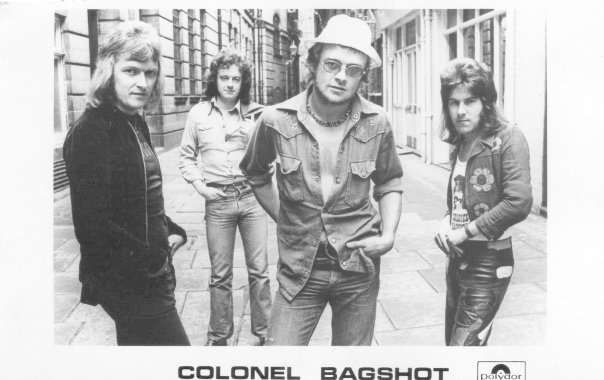
What are some of the strongest recollections from working on ‘Oh! What A Lovely War’?
Brian Farrell: I wrote all but one of the songs, on the album, and the title track as well as ‘Six Day War’, where anti-war themes were very common in the early 60’s. A bit of humour was the fact that on the title track ‘Oh! What A Lovely War’, I play the stylophone, as did David Bowie on ‘Space Oddity’.
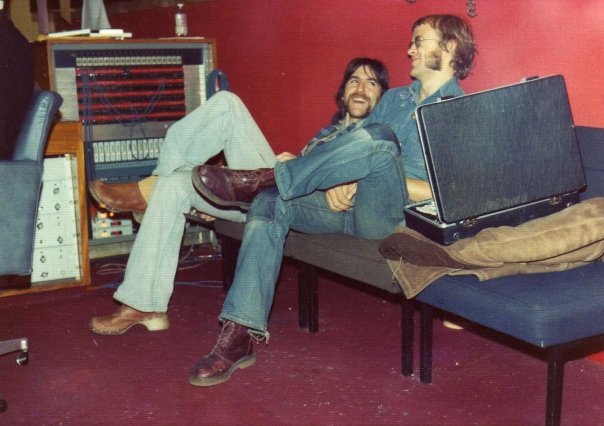
Where was the album recorded? Who was the producer? What kind of equipment did you have?
Brian Farrell: The album was recorded at Decca London. The producer was Martin Hall, and the equipment was very standard and primitive. There was nothing of any great note in terms of the equipment. I personally used a 1962 Fender Stratocaster that I was very fond of.
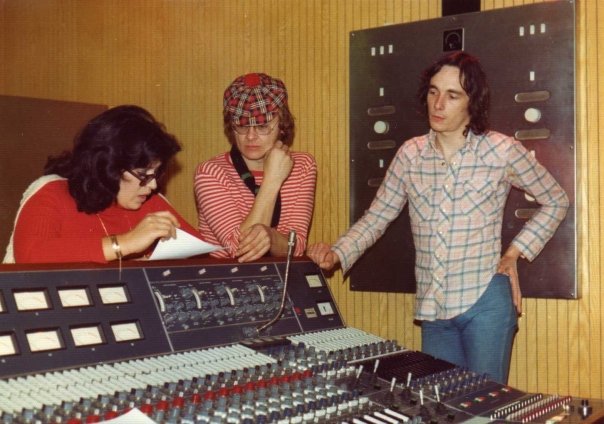
Would you share your insight on the albums’ tracks?
Brian Farrell: ‘Six Day War’, there are multiple versions of this track done by a number of people including, DJ Shadow and Mahmut Orhan. Mahmut Orhan has over 236,000,000 views on YouTube and he has mixed several other versions. The DJ Shadow version was used in the The Fast and the Furious: Tokyo Drift, Furious 7, and in the Phone Booth film. This is by far and away the most well known song from this album. I have since done multiple versions of this song over the years, trying to improve it or try different techniques with it, and they are on my YouTube Channel in case you are interested.
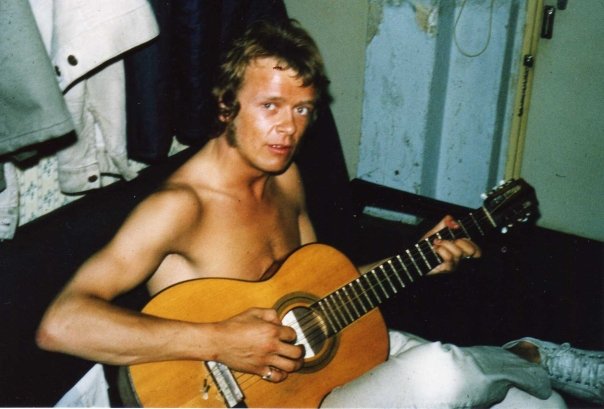
‘Lay It Down’, earlyish metal?!
Brian Farrell: ‘Lord High Human Being’, I like the line “Mother nature’s matricidal son”. It’s actually quite difficult to get those words into a song , so I was quite proud of myself for that one.
‘Headhunters’, light hearted verging on humor.
‘I’ve Seen The Light’, this is the one song on the album written by Kenny Parry.
‘Dirty Delilah Blues’, Bawdy Barrelhouse sing-along.
‘Sometimes’, this is currently being sampled and remixed to be released shortly.
‘That’s What I’d Like To Know’, I am also very fond of this song, although that wasn’t necessarily the case when I first wrote it. It has grown on me over the years.
‘Smile’, this was the band’s second single.
‘Tightrope Tamer’, I have produced newer versions.
‘Oh! What A Lovely War’, I prefer my YouTube version of this.
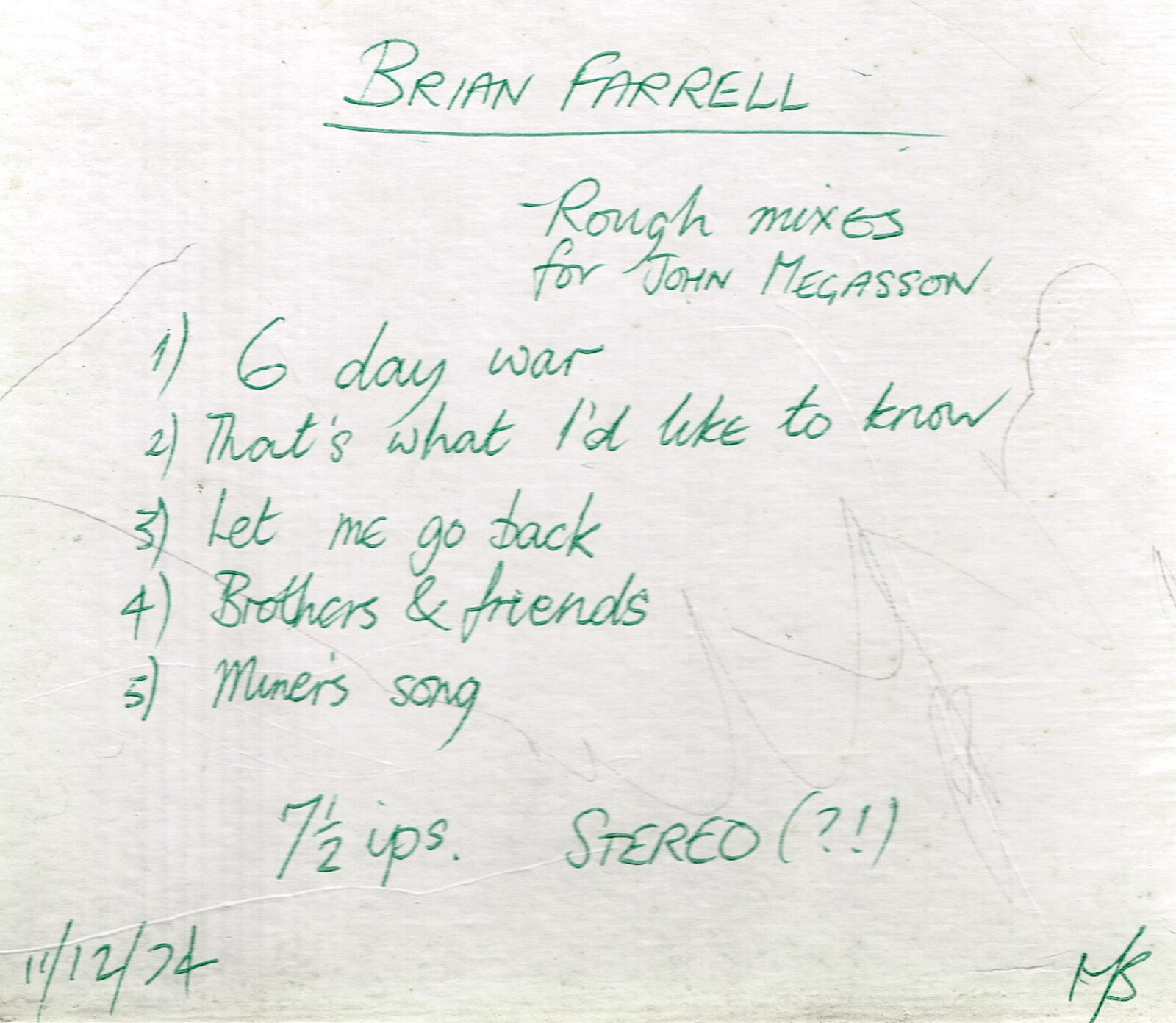
Do you know how many copies were pressed? Did you get any airplay?
Brian Farrell: I have no idea how many copies were pressed. It was released worldwide but never in the UK, how insane, so consequently we got no airplay in the UK, and have no way of knowing if we got any worldwide.
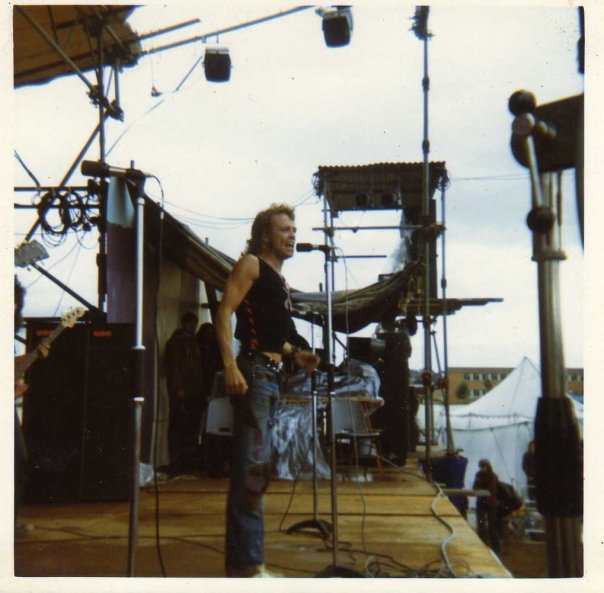
What can you say about the cover artwork?
Brian Farrell: The album artwork was by Mia Krinsky and David Krieger.
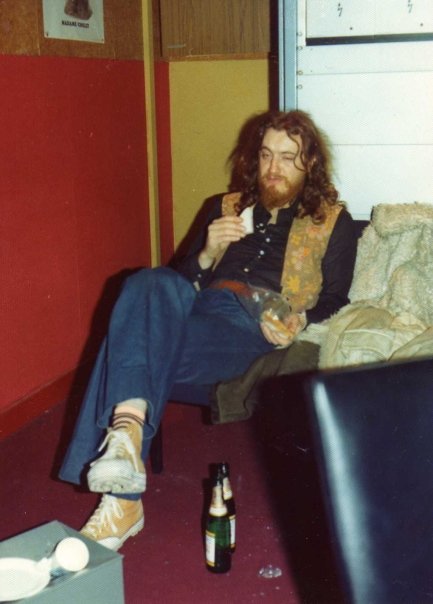
Seelie Court will issue your album on vinyl. Are you excited about it?
Brian Farrell: Yes, very! In addition to that, they will also issue Brian Farrell & Colonel Bagshot – ‘Six Days War’, unissued songs and different versions. Legendary Ollie Halsall played on some of them.

Would you like to talk about the material we will hear?
Brian Farrell: As well as Ollie Halsall, there were people like Zoot Money (keys), Gerry Conway (drums), Viv Stanshall (Bonzo Dog Doo-Dah Band), Mike Gregory of The Escorts (bass), Sue and Sunny (backing singers) and B. J. Cole.
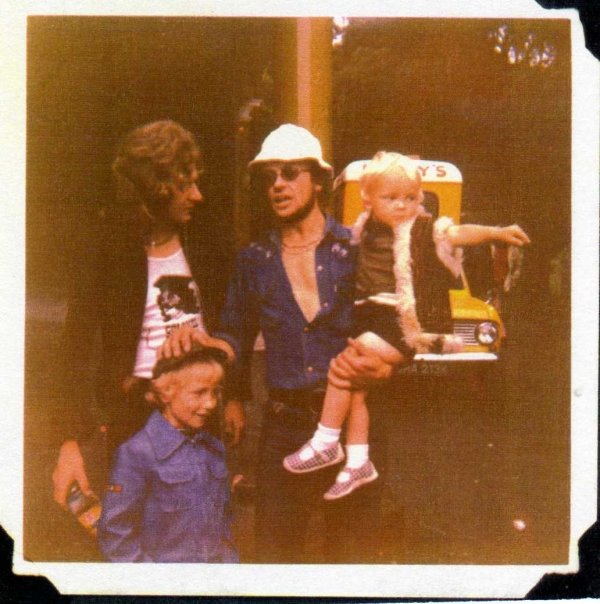
Did the band tour to support the LP?
Brian Farrell: No, there was almost nil promotion, as it was not released in the UK.
Kenny Parry: We did three European tours supporting Slade, also three times The Top Ten Club in Hamburg apart from that we just kept working intensely.
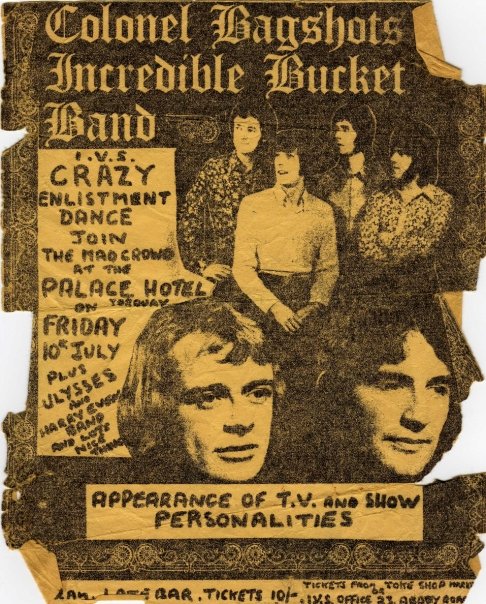
What happened after the band stopped? Were you still in touch with other members? Is any member still involved with the music?
Brian Farrell: I went solo and the rest of the members got a girl singer and made a band called Bunny and released a single called ‘Baby You’re Getting To Me’, which didn’t get very far. Dave Dover was involved with too many bands to mention playing bass, and has stopped doing music. Kenny Parry was also in many bands, one with Billy Kinsley from The Merseybeats and that band was called Liverpool Express. Terry McKusker was also in many bands, one that had a record deal and they were called Thunderboots. Yes I am still in touch with all of the members, well the four piece which was the main Colonel Bagshot. Dave Dover isn’t doing music any more, but we are still in touch fairly regularly. Kenny Parry has been doing music for years and still does gigs at various pubs in Liverpool, and Terry McCusker played drums for years and is my best mate.
Kenny Parry: We had our moments when we were young men, but we’re all still above ground and all still playing, and we’re all very good friends. We keep in touch regularly.
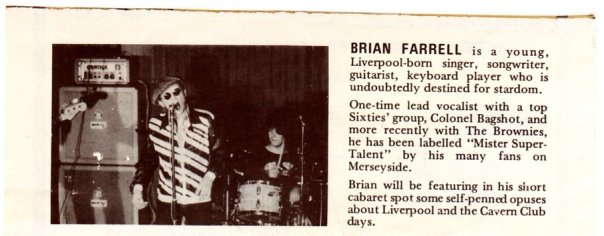
Looking back, what was the highlight of your time in the band? Which songs are you most proud of? Where and when was your most memorable gig?
Brian Farrell: I would think the most memorable highlight, of Colonel Bagshot, was a European tour we did supporting Slade, the thing that made it so memorable, what is something we referred to as superb exes, meaning anything we wanted we just have to sign for, shall we literally had competitions to see who could spend the most. The songs I am most proud of are obviously ‘Six Day War’, but also from that album ‘Lord High Human Being’, if for no other reason, it gets in the line, “Mother nature’s matricidal son”. I also did a single for Warner Brothers called ‘England’ and I had a 28 piece choir and a 56 piece orchestra which was quite a buzz, having written it on an £8 piano.
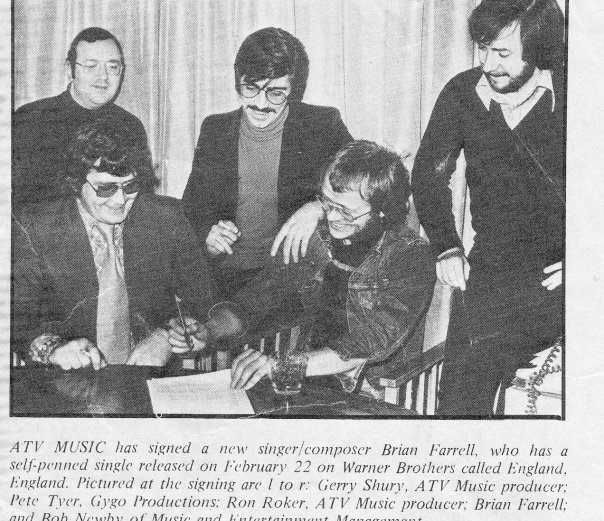
There is another important member who needs to be added to the personnel of the Warner Brothers Band. That member was Andy Roberts, of “The Liverpool Scene” on acoustic guitar, who played on the opening of ‘Six Day War’ (Warner Brothers edition) with me singing.
If you want to listen to it you can go to my YouTube channel as I have been writing and producing my own music for the last ten years. There are lots of examples on YouTube on my channel. Try ‘Stackhorn Peak’ which Oli Halsall is on, or ‘Princes Court Waltz’ (my favorite of recent times). My most memorable gig was probably the Reading Festival in 1971 because it was the first year of the Reading Festival, it has become an iconic and historical music festival and I am really proud to have been a part of it.
Thank you for taking your time. Last word is yours.
Brian Farrell: Thimble pump!*!*!*!*!*!*!***.
Klemen Breznikar
Brian Farrell YouTube

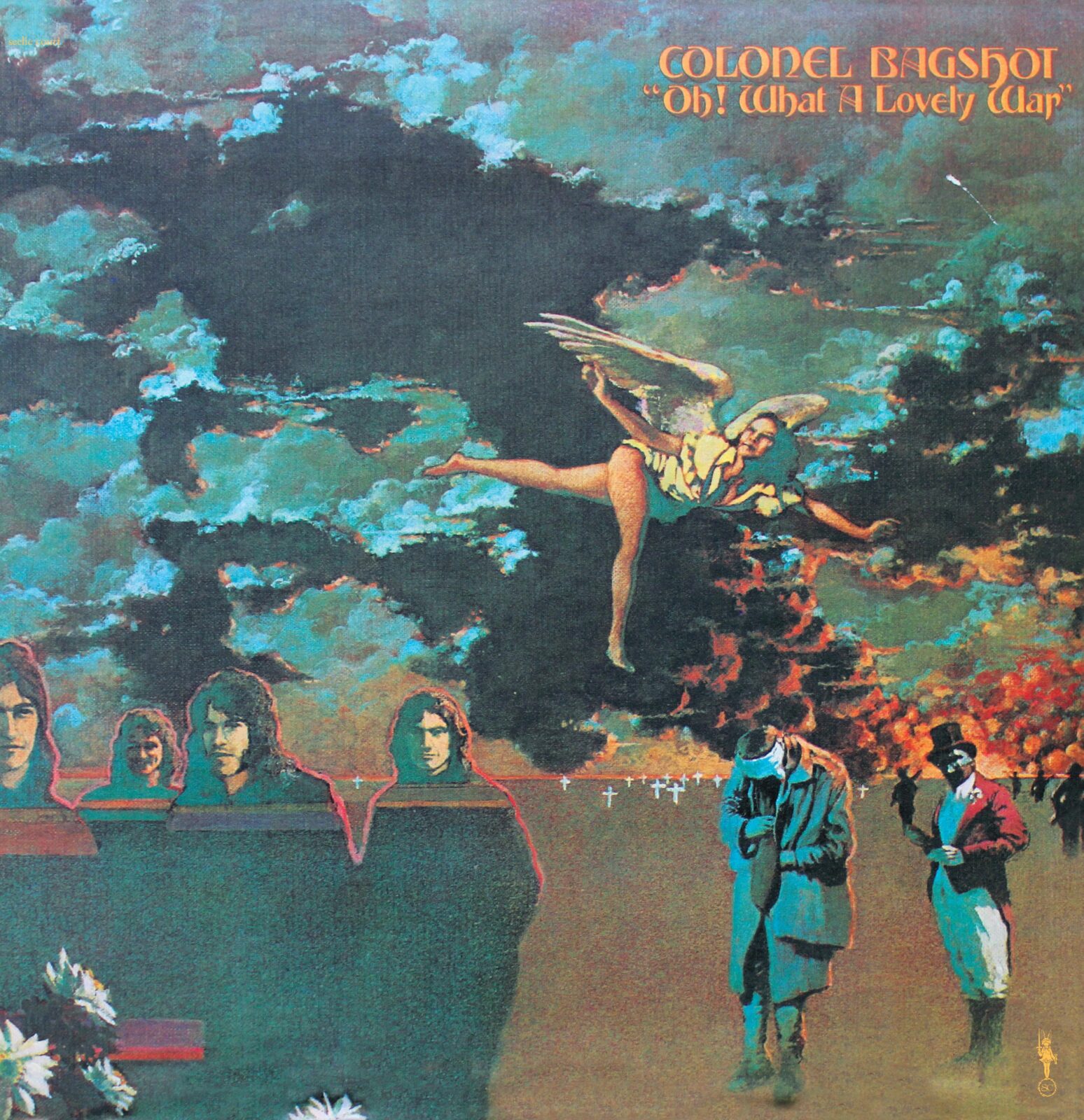
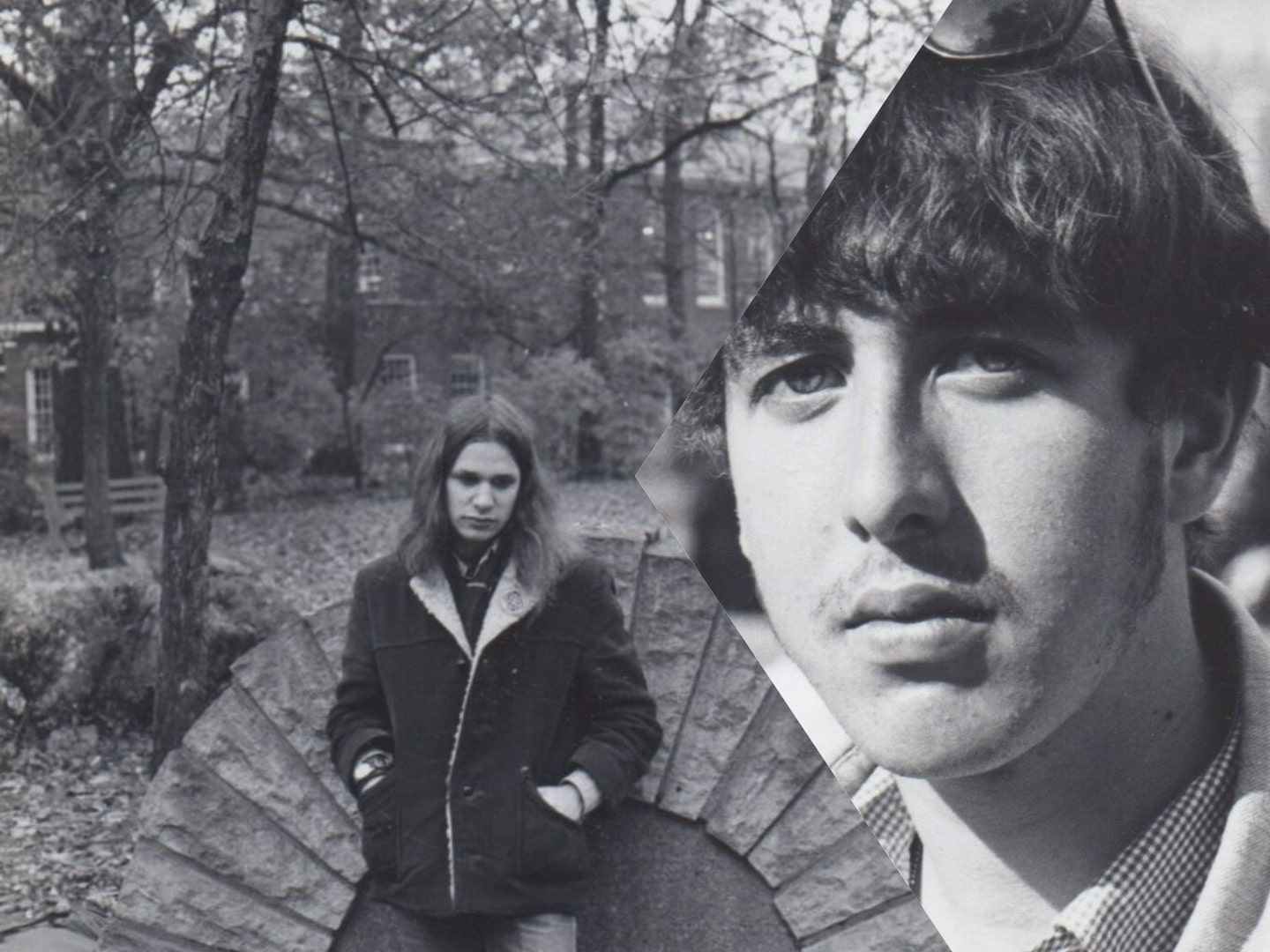
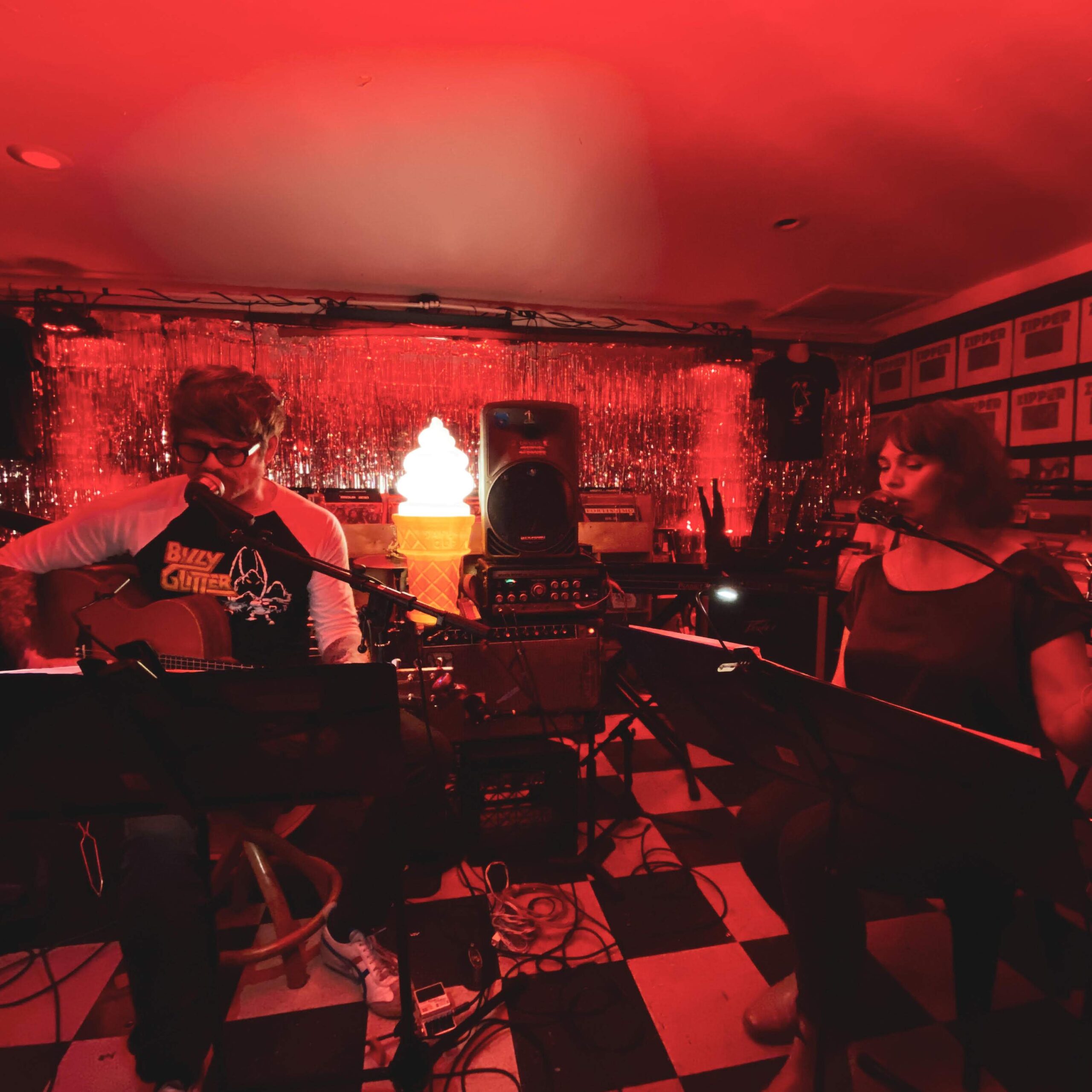
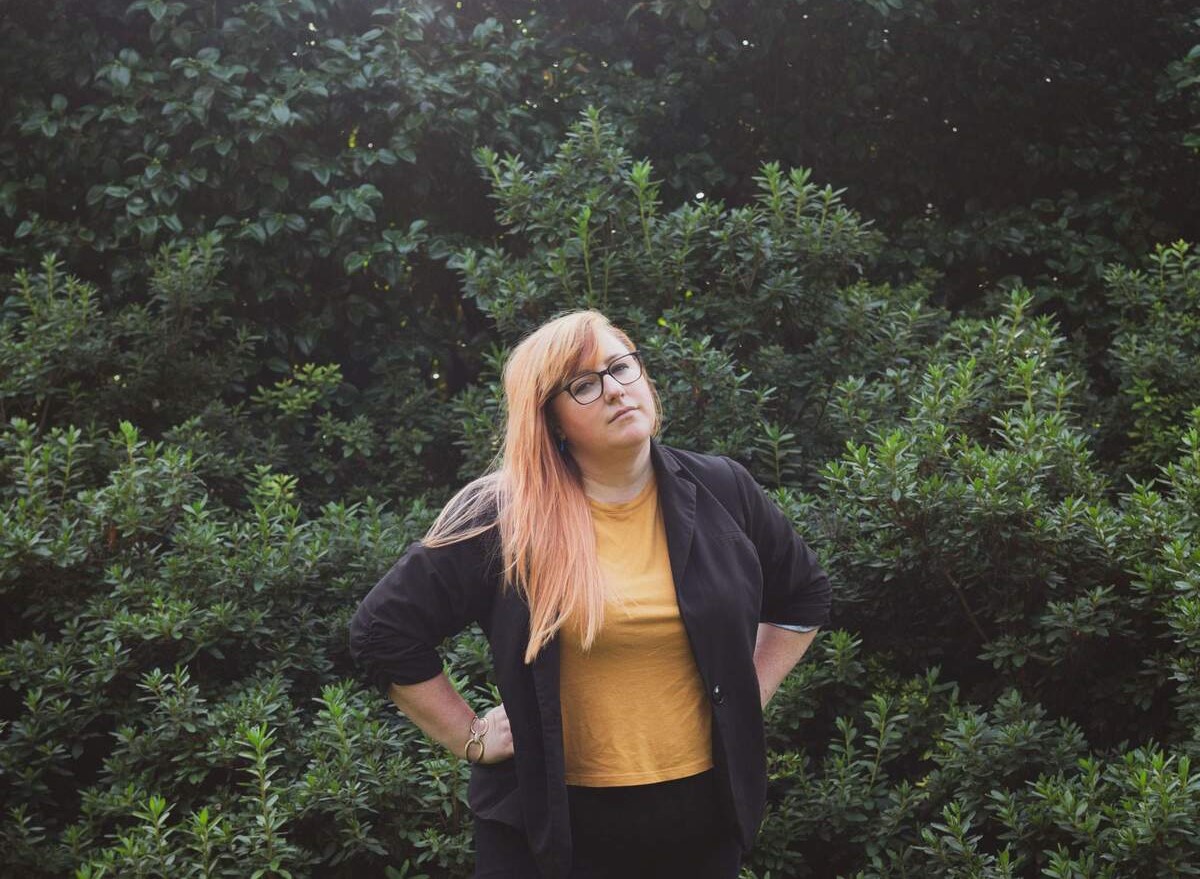
Thank you Klemen !
Found one copy on amazon.